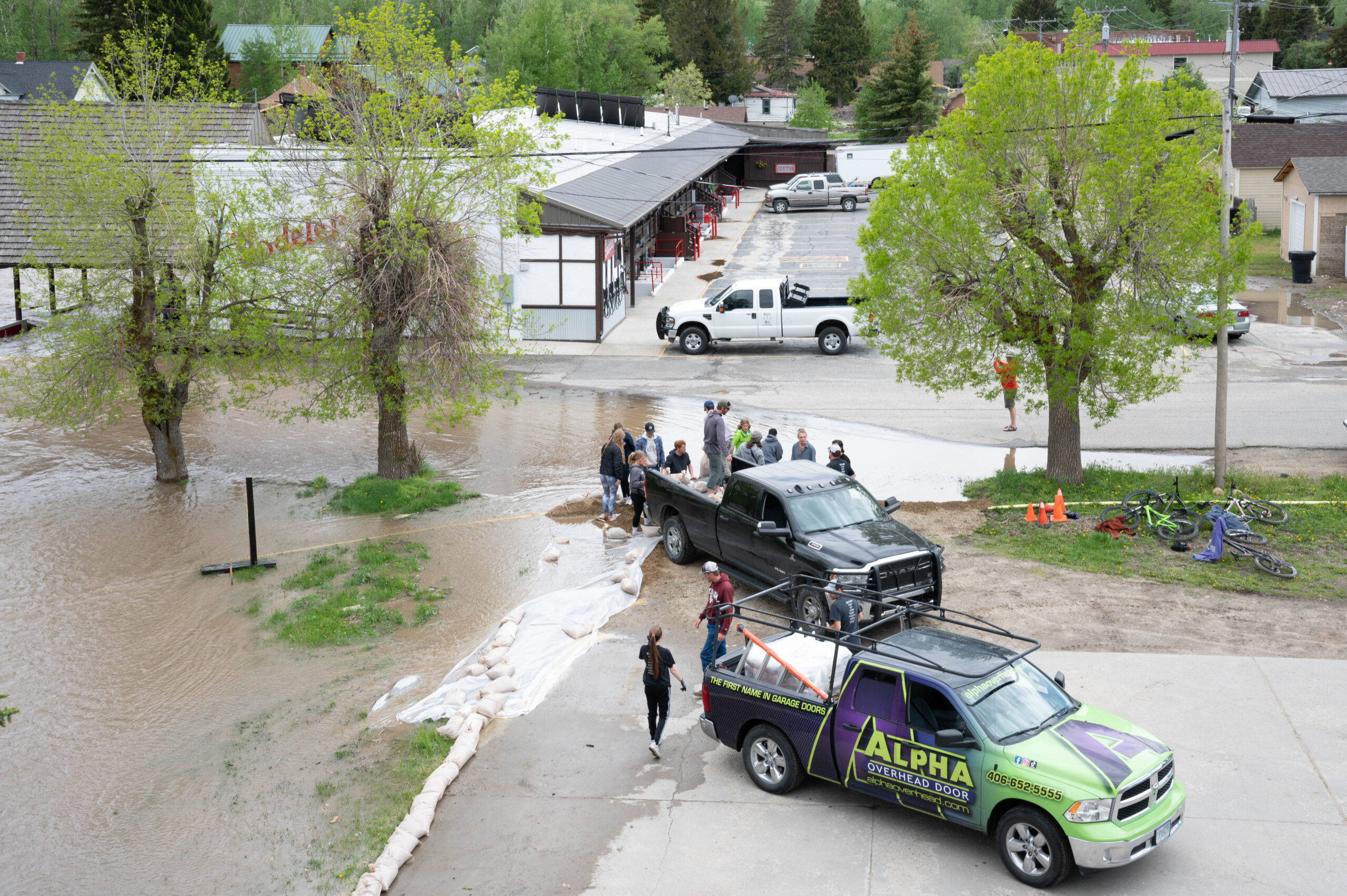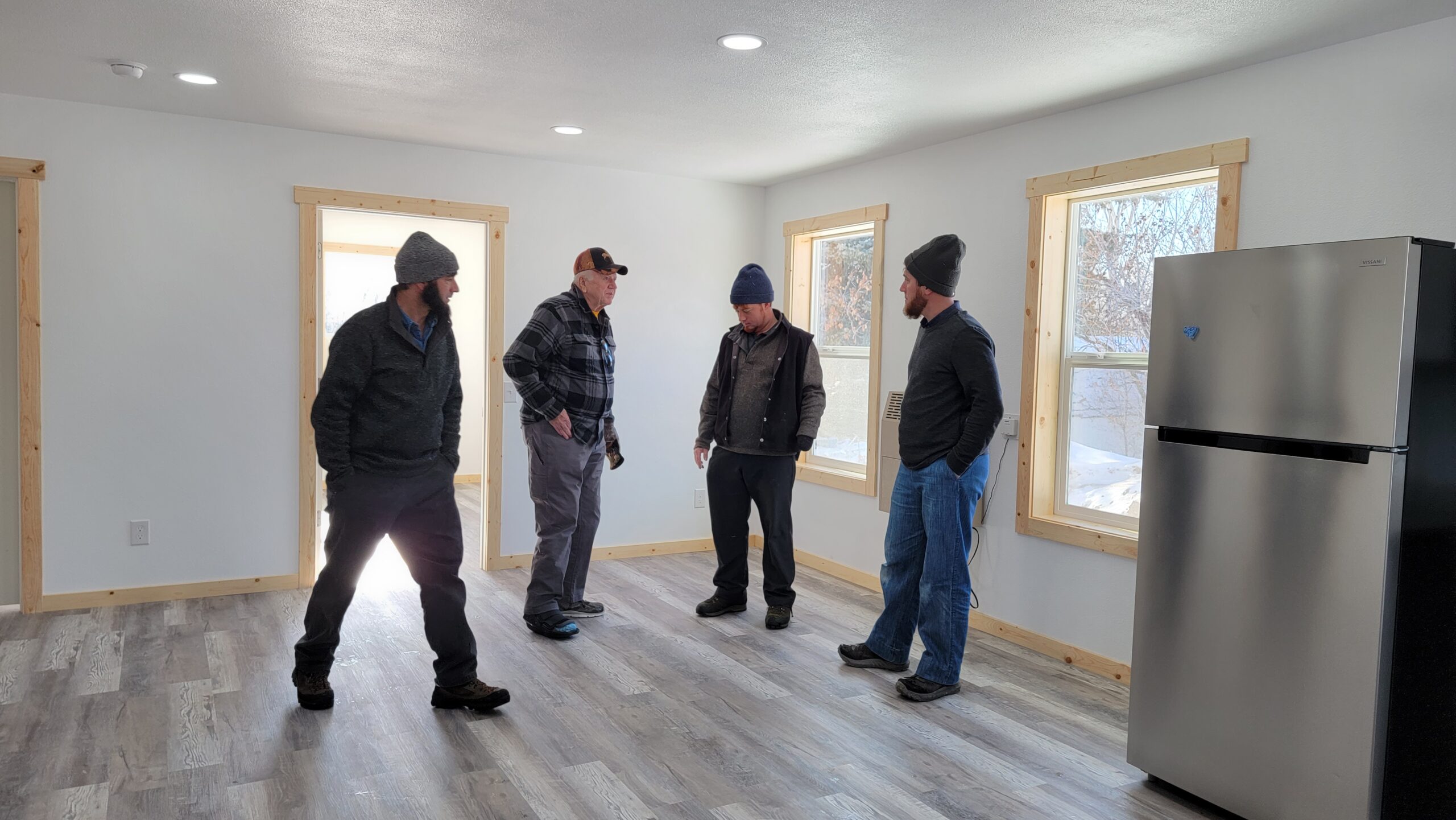Red Lodge Area Community Foundation’s response to flooding in Montana

“We did not have the capability to do any of the services that the Foundation provided, and how lucky we are to have an organization of this stature.” – Bill Bullock, County Commissioner, Carbon County
In June 2022, unprecedented flooding of the Clark Fork River resulted in house destruction and mandatory evacuations in small towns in Carbon County, Montana, with around 100 homes submerged. The area suffered damage to primary and secondary residences, extensive road and bridge loss, and agricultural property damage. The Clarks Fork River Valley faced significant devastation, including crop damage, loss of land and destruction of outbuildings.
Towns like Belfry, Bridger, Fromberg and Edgar experienced varying levels of impact. Fromberg, an economically disadvantaged community with a poverty rate of over 17%, was particularly affected. More than half the residents in Fromberg faced damage, and 90 homes were lost.
The Red Lodge Area Community Foundation (RLACF) stepped in to help those excluded from federal assistance for recovery. Coordinating more than 350 volunteers, RLACF provided essential support to 300 homes within the first week, offering debris removal assistance and connecting flood survivors with cleaning supplies, food and financial resources.
With a grant from CDP’s Midwest Early Recovery Fund, RLACF hired recovery navigators to assess needs, support recovery goals and advocate for flood survivors in Carbon County. These dedicated case managers worked closely with affected households, addressing a range of needs from rebuilding to finding new housing, financial management and mental health support.
The recovery navigators successfully closed 74 cases, ensuring 100% of those survivors received assistance for home repairs, furnishings, resettlement, food security, financial gaps and transportation.
CDP funding also empowered RLACF to invest in Foundant Software to manage funds and collect long-term recovery data. The initial weeks of early case management revealed the most significant need was $1.3 million for housing repairs.
The grant also supported long-term disaster recovery through Efforts of Advance Preparedness (EAP). EAP included emergency mitigation and volunteer management through software with up-to-date data. The new volunteer management software created a county-wide database, connecting with towns and the Carbon County Health Department, enhancing communication and coordination for rural disaster emergencies.
“This grant gave RLACF the opportunity to provide in-person recovery assistance by hiring staff to conduct the recovery navigator work, the software to distribute disaster funds, and the software to develop a volunteer database for each community. Without the CDP funds, our organization would not have been able to provide this direct assistance.” – RLACF
Red Lodge Area Community Foundation’s impactful work received recognition when the state confirmed the comprehensive response while assessing recovery efforts, validating the effective partnership with the county government and foundation.
CDP funding played a pivotal role in these achievements, enabling RLACF to provide direct assistance, including a compelling case of a 75-year-old veteran who lost his family home.
“With CDP funding, we made a significant impact on flood victims, including a 75-year-old veteran who lost his century-old family home and cherished belongings. Through the disaster relief fund, our team, alongside the Roberts, Montana Amish community, enabled him to afford a complete rebuild, connecting him with resources to replace personal items and furnish his new home.” – RLACF

CDP is proud to support the Red Lodge Area Community Foundation’s vital response to the flooding in Montana. RLACF’s impact was profound in reaching disadvantaged individuals to help them rebuild and recover.
Story by Juanicia Crump